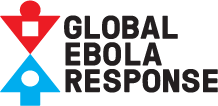
1:00-5:00 pm, July 8, 2015
Manhattan Room, One UN Plaza, Second Floor
44th St. and 1st Ave., New York City
Agenda
On Wednesday July 8, 2015, an afternoon session will address Ebola response & recovery data strengthening, situational awareness, and coordination. This working session will be held at U.N. headquarters in New York or a facility nearby from 1:00 PM to 5:00 PM.
Following are the proposed elements of the July 8 afternoon session:
1:00 PM 40 mins Opening Plenary Session
An Overview of West Africa’s Current & Emerging Infrastructures
Barbara Bentein UNICEF
Juliet Benford Anthrologica
Sara Glass USAID, Global Development Lab
Recent Comments